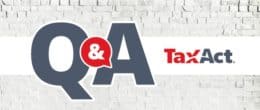How to Track Self-Employed Expenses All Year Long


File your business taxes with confidence.
Backed by our $100k accuracy guarantee.
Numerous advantages come with being your own boss. For starters, you can set your own hours and vacation schedule. It gives you the flexibility to work remotely and spend some time enjoying a nomadic lifestyle. In fact, you may not have to change out of sweatpants for an entire day!
But, those perks aside, there are some benefits to working for an employer. When you leave the comfort of a traditional job, you’re not just walking away from a steady paycheck and benefits package. You’re also walking away from the delight of having an HR department.
Life as your own boss means sending your own invoices, hounding delinquent clients for payment, paying quarterly estimated taxes and tracking your own business costs.
To help you navigate the world of owning your own business, here are some tips on diligently tracking your self-employed expenses.
Know what qualifies as self-employed expenses
First and foremost, it’s important to understand what counts as a business cost – otherwise known as self-employed expenses. According to the IRS definition, those expenses must be “ordinary” and “necessary” to your business.
For example, domain hosting costs and the price of purchasing a URL for your website’s business count as a business expense. However, you can’t deduct the cost of a personal website that has nothing to do with your business. If you’re attending a work conference, the ticket and flights could qualify as business expenses. But getting a manicure to improve your appearance at the conference doesn’t.
Let’s say it together: spreadsheet!
Sure, you could probably find some tech-savvy way to handle all of your finances. But sometimes it’s helpful to kick it old school with a spreadsheet to track both your income and expenses.
In your spreadsheet, try having four columns titled item, cost, date, and receipt. You could also make notes in the receipt section about where the receipt is stored, like in an email folder because it was an online transaction or on your desktop.
This process helps track your self-employed expenses and streamlines the process for filing your quarterly-estimated taxes.
There’s nothing wrong with using a technology resource like Freshbooks to invoice and track expenses. But the spreadsheet method is just as valid — and it’s free!
Keep in mind, the more employees your company gets, the more resources you’ll need. A spreadsheet is useful if you’re a party of one, but you may need more assistance if you’re a growing business.
Take pictures and organize receipts
Thanks to our digital world, there’s a good chance you’ll receive some of your receipts via email. In this case, create a dedicated folder in your email to store your business expenses.
In addition, keep a folder on your desktop to house photos of paper receipts. You can always keep paper receipts in a physical folder as well, but it’s much harder to lose a digital copy.
A self-employment best practice is to meticulously record each business expense and to file your receipts accordingly. That said, if we’re honest with ourselves, a lot of us tend to procrastinate on such activities. At the very least, save and store away your receipts in one folder. Then make note of any expenses at least once a quarter when it’s time to pay your taxes.
Always keep your tax returns and receipts for at least three years in case you’re audited. If you happen to file for a loss or experience a bad debt situation, hold on to your tax documents and receipts for seven years.
File quarterly-estimated taxes
The final part of keeping your self-employed expenses in tip-top shape is to file quarterly estimated taxes. Failure to file could result in penalties to the IRS.
Staying current with your taxes by paying throughout the year forces you to stay on top of your business expenses. Plus, it can help you avoid a big, unwelcome tax bill when you file your return.




